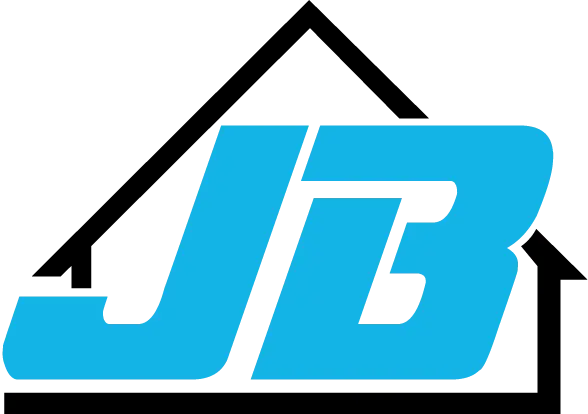Gutter systems play a vital role in managing water flow from roofs to the ground, preventing ground erosion and safeguarding homes and buildings. However, for a gutter system to work effectively, it needs a way to direct water away from the downspout. Uncontrolled water flow at the base of the downspout can lead to issues near the foundation, negating the advantages of having gutters in the first place.
This is where splash blocks come into play. Splash blocks are simple but essential components that sit at the bottom of your downspout, ensuring that water is directed safely away from your house and foundation. In this guide, we’ll explore the world of splash blocks, comparing concrete splash blocks to their plastic counterparts to help you make an informed decision about protecting your home’s foundation.
The Role of Splash Blocks
Before we dive into the comparison between concrete and plastic splash blocks, it’s crucial to understand their purpose. Splash blocks are designed to redirect water away from the downspout exit, preventing the accumulation of water near your home’s foundation. By doing so, they help maintain the integrity of your foundation, prevent soil erosion, and keep your property looking its best.
Concrete Splash Blocks: Pros and Cons
Concrete splash blocks offer a range of advantages that make them a popular choice for homeowners looking to safeguard their properties. Here’s a closer look at the pros and cons:
Pros of Concrete Splash Blocks
- Durability: One of the standout benefits of concrete splash blocks is their durability. Their substantial weight ensures that they remain in place even in high winds or after encountering lawn care equipment. This longevity means they can effectively perform their role for years.
- Subtle Appearance: Concrete splash blocks blend seamlessly into garden landscapes due to their subtle appearance. Their low profile means they don’t distract from the surrounding area. If you’re not fond of their appearance, you can easily hide them with shrubs or low-profile plants, ensuring they don’t detract from your garden’s aesthetics.
- Versatility: Concrete splash blocks come in various sizes, providing options to fit different yards and homes. Their efficient water redirection also prevents mud splatters on the wall next to the downspout, enhancing the overall look of your home.
Cons of Concrete Splash Blocks
- Heft and Weight: The weight of concrete splash blocks, while contributing to their durability, can make installation a challenging task without assistance. Larger blocks can be particularly heavy, with 4-foot blocks weighing as much as 110 pounds. However, this weight is an advantage as it ensures they stay in place once properly positioned beneath your downspouts.
Plastic Splash Blocks: Pros and Cons
Plastic splash blocks offer a viable alternative to concrete, with their own set of advantages and disadvantages. Let’s explore them:
Pros of Plastic Splash Blocks
- Versatility: Plastic splash blocks come in various shapes, sizes, and colors, providing homeowners with ample options to choose from. You can select a splash block that blends seamlessly into your landscape or opt for darker colors for better camouflage.
- Cost-Efficiency: Plastic splash blocks are budget-friendly due to their lightweight construction. Their lower weight makes shipping costs more economical than concrete blocks.
- Lightweight: Plastic blocks are easier to carry and install, making them a suitable choice for homeowners who prefer to handle installation themselves.
Cons of Plastic Splash Blocks
- Vulnerability to Movement: The lightweight nature of plastic splash blocks can make them susceptible to movement from heavy rains, lawn mowers, leaf blowers, or trimmers. If they shift out of place and aren’t promptly readjusted, they won’t effectively redirect water away from your home.
- Durability Concerns: Plastic isn’t as robust as concrete, and it can deteriorate in extreme weather conditions. Mowers can damage the material, leading to cracks that compromise the splash block’s effectiveness. Thinner, lighter plastics are particularly susceptible to severe consequences from cracks.
Which is Better: Concrete or Plastic Splash Blocks?
The choice between concrete and plastic splash blocks ultimately depends on your specific requirements and priorities. Here are some key considerations:
Concrete is a sturdy and weather-resistant choice that can withstand extreme conditions. It offers a long-lasting solution that requires minimal maintenance and remains stable in place for years. Concrete splash blocks are ideal for areas with varying precipitation levels and provide reliable water diversion, potentially saving you thousands of dollars in future foundation or basement repairs.
Plastic is lightweight, versatile, and cost-effective. However, it may not offer the same level of durability as concrete, and it can be vulnerable to movement from various sources. Plastic splash blocks are suitable for homeowners on a budget who prioritize ease of installation.
For those seeking a drainage solution that can handle diverse weather conditions, last for years, and provide durability, concrete splash blocks are the preferred choice. Investing in concrete splash blocks can help you prevent foundation or basement damage, offering peace of mind and long-term protection for your home.
The Advantages of Leaf Gutter Guards
While splash blocks play a crucial role in directing water away from your home, they work in conjunction with an efficient gutter system. Leaf gutter guards offer a unique, patented one-piece debris-shedding design that surpasses other gutter systems on the market.
Leaf guard gutters operate on the principle of liquid adhesion, allowing rainwater to enter while deflecting leaves and debris. These gutters are built with durability in mind, capable of handling heavy rainfall and extreme weather conditions.
Constructed from aluminum, Leaf guard gutters are 20% thicker than industry standards, providing exceptional strength and longevity. With superior support and minimal maintenance requirements, Leaf guard gutters ensure that your home remains protected against water-related damage, saving you from potential costly repairs.
In conclusion, while splash blocks are essential for directing water away from your foundation, investing in a reliable gutter system like Leaf guard can further enhance your home’s protection and reduce maintenance concerns.


Recent Comments